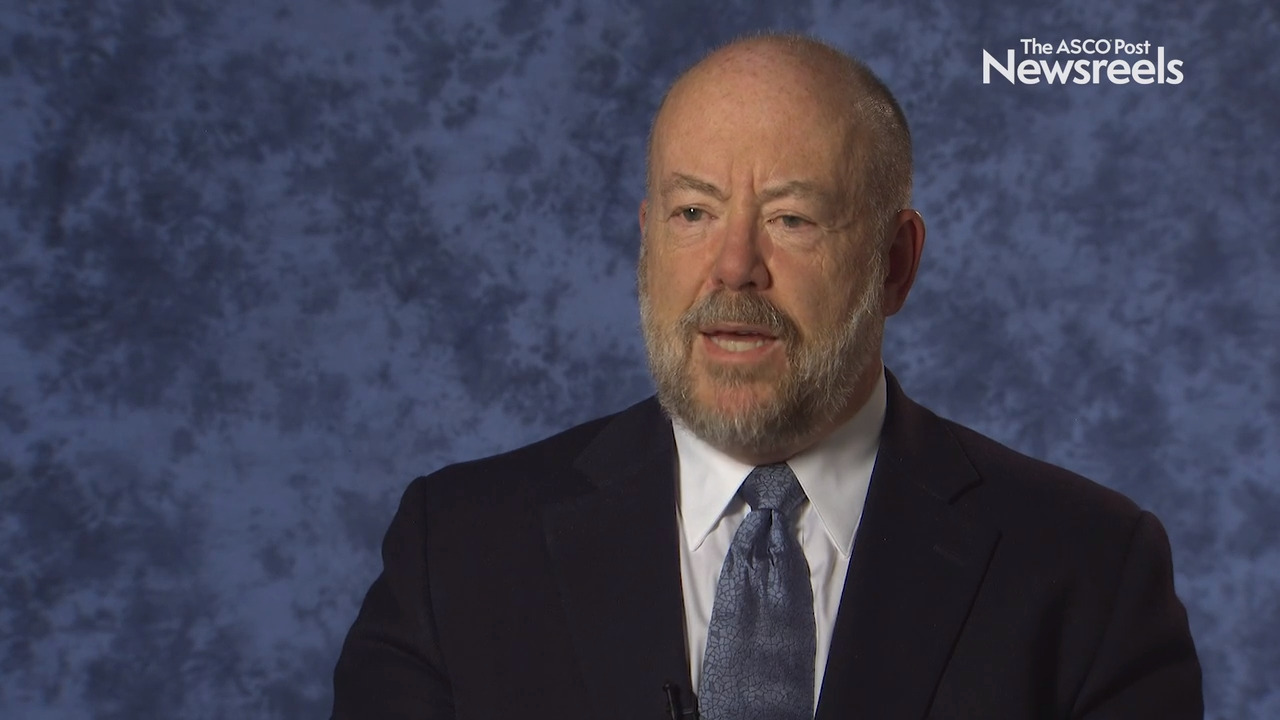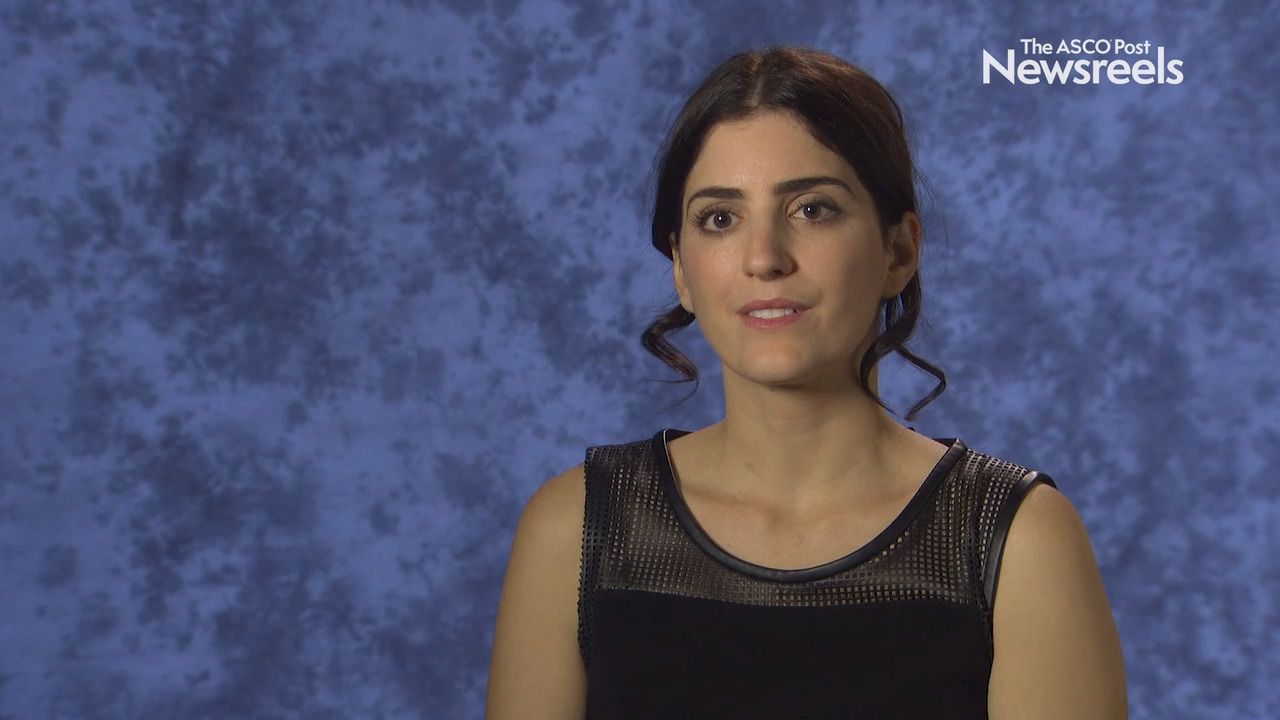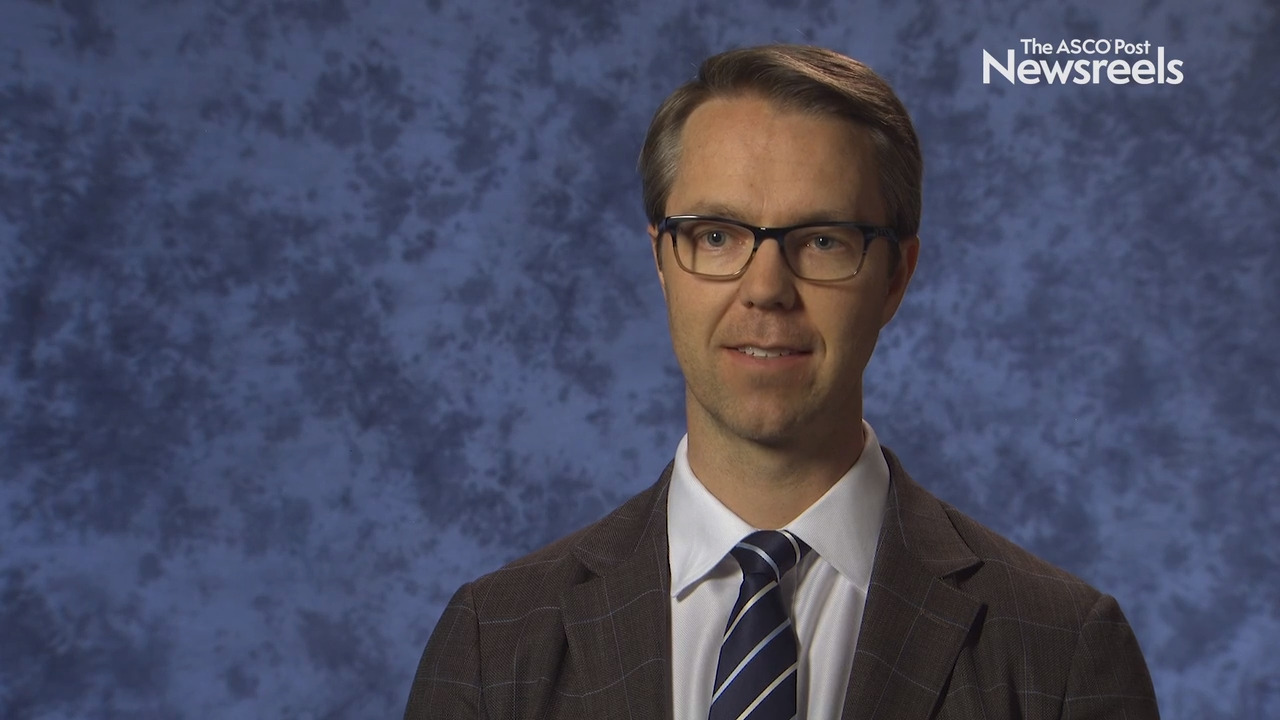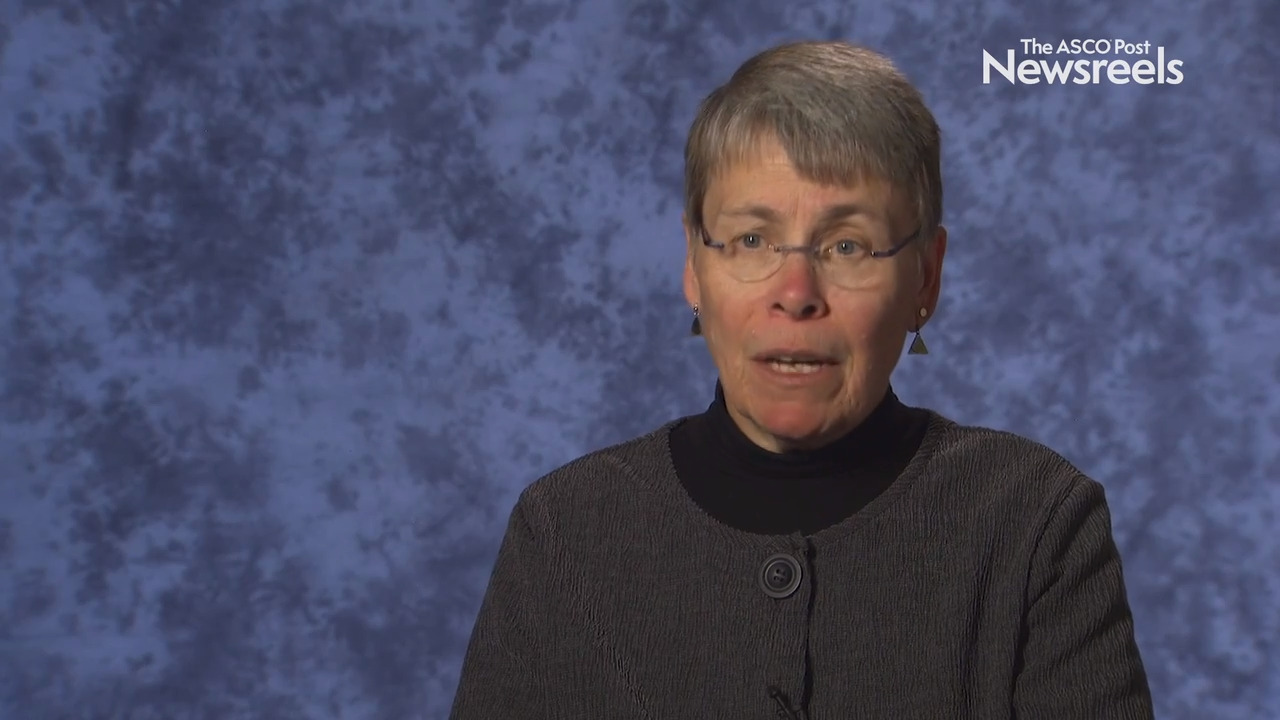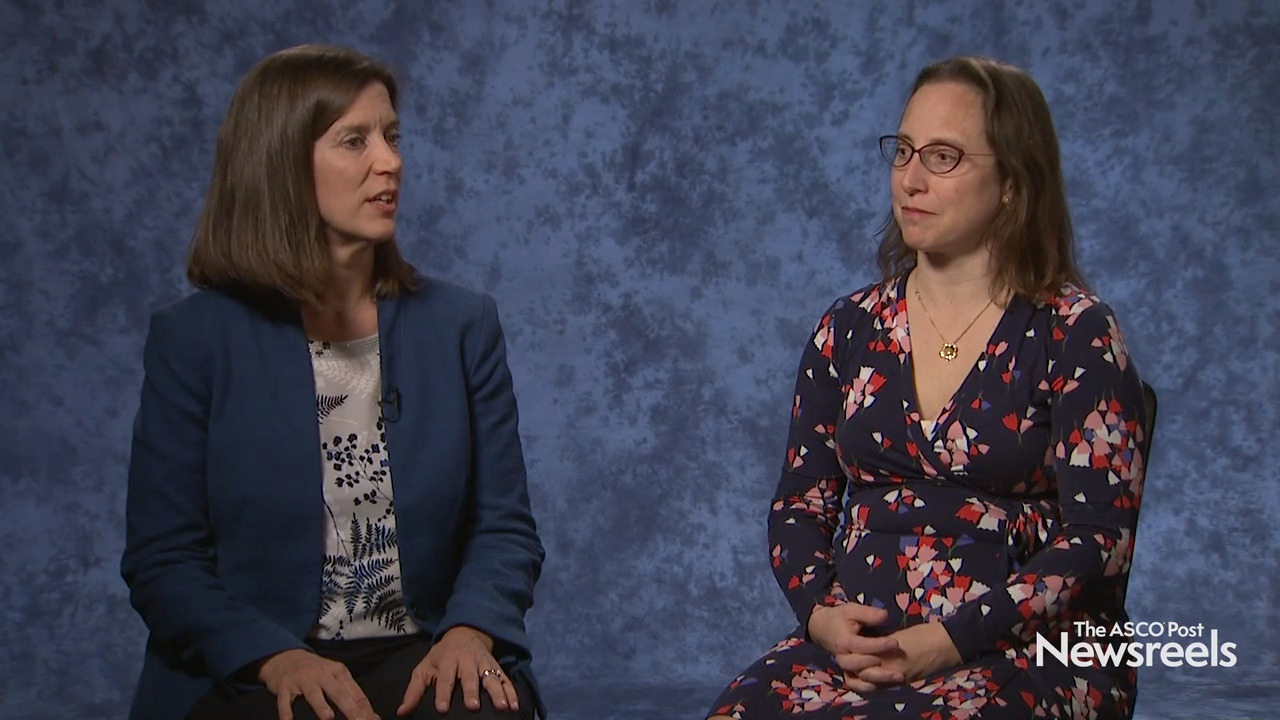Katherine C. Lee, MD, on Emergency Surgery and End-of-Life Care
2018 Palliative and Supportive Care in Oncology Symposium
Katherine C. Lee, MD, of Massachusetts General Hospital, discusses her study findings that showed older patients with metastatic cancer who survived emergency general surgery experienced higher intensity end-of-life care than similar patients who did not undergo surgery (Abstract 56).
Charles von Gunten, MD, PhD, of OhioHealth, discusses the critical need for opioids to manage cancer pain as well as the myth of addiction, which may impede best care.
Suleika Jaouad, an Emmy Award–winning writer, advocate, and cancer survivor who was diagnosed at age 22 with myelodysplastic syndrome and acute myeloid leukemia, discusses what she has learned about coping with cancer, learning from it, and growing beyond it.
Eric Roeland, MD, of Massachusetts General Hospital, discusses the wide variation among physicians in preventing vomiting from highly emetogenic chemotherapy (Abstract 74).
Mary E. Johnson, author of Stay With Me Awhile, discusses her play, a compilation of vigil stories from across cultures and religions, and the profound impact the performances have had on audience members.
Mary K. Buss, MD, MPH, of Beth Israel Deaconess Medical Center, and Candice A. Johnstone, MD, MPH, of the Medical College of Wisconsin, discuss a session they co-chaired on the perspective of stakeholders on the cost of cancer care, what drives patients’ preferences when faced with mounting medical bills, and interventions to improve transparency.
